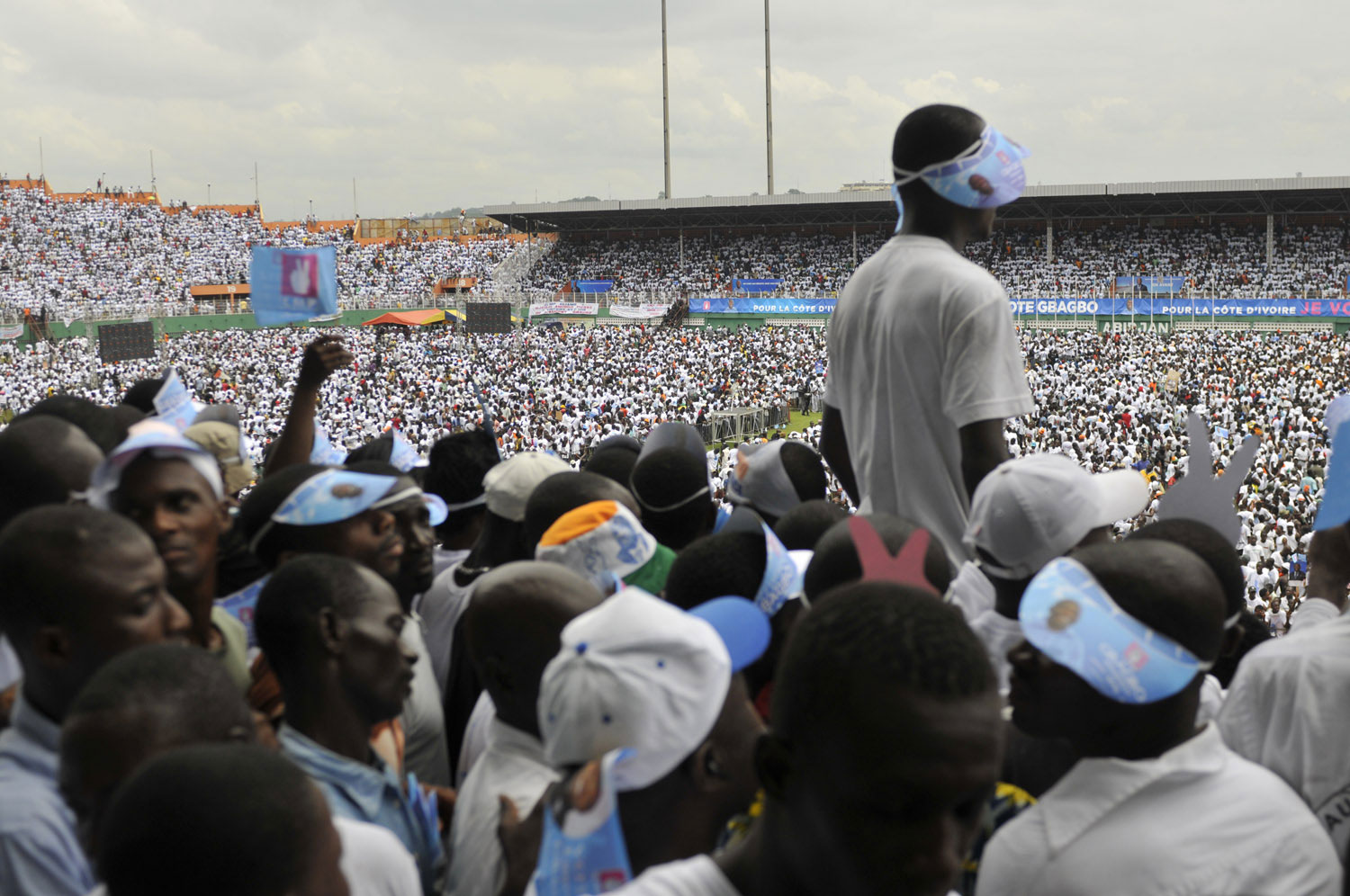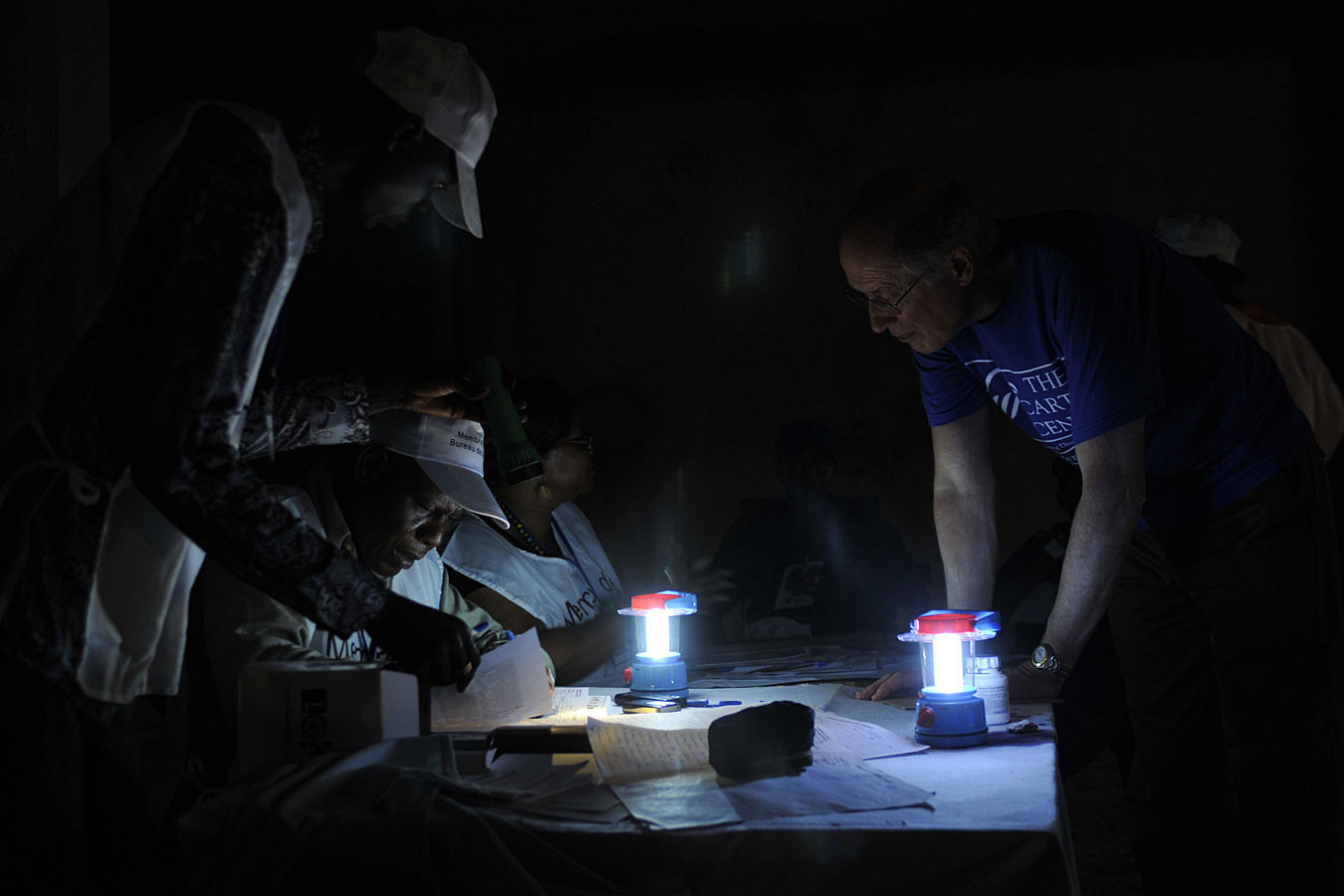The Carter Center is the only American nongovernmental organization observing the historic presidential elections in Guinea and Cote d’Ivoire, and among the handful of international observers present, we have been deployed longer and more extensively than anyone else. These elections represent the first openly competitive contests for both nations since the end of French colonial rule a half-century ago. Guineans voted on June 27, with the runoff finally set for November 7. Ivoirians go to the polls October 31, with a runoff planned for November 28, if needed.

Tens of thousands attend a rally for presidential candidate and sitting president, Laurent Gbagbo, on Oct. 29, 2010 in Abidjan. (Photos: D. Hakes)
The immediate challenge, however, is for the governments and people of Cote d’Ivoire and Guinea to hold peaceful and credible presidential elections. Many risks remain due to persistent mistrust among candidates, lack of experience in–and national respect for–electoral management bodies, weak political and administrative institutions, and the many shortcomings in electoral procedures, logistics, and training already evident in the conduct of the June 27 presidential election in Guinea. Uncertainties about the holding of the Guinea presidential runoff and delays in scheduling the Cote d’Ivoire national election have complicated and constrained the capacity of international observer groups to deploy adequately.

Carter Center Peace Programs Vice President John Stremlau observes the counting of ballots at a polling station in Guinea in June 2010.
Throughout the pre-election period, The Carter Center has assumed a leading role in issuing reports on the preparations, identifying logistical and procedural gaps and needs, and–most importantly–calling upon all leaders to play by agreed rules, support the electoral management bodies (despite their evident weaknesses, inexperience, and evidence of politicization), and accept the results as they have pledged publicly to do for good of the nation. Accusations of manipulation and intimidation have recently escalated in Guinea, and shadow the process in Cote d’Ivoire. Whatever the outcomes, these historic elections are essential for securing still fragile peace agreements.
Since our initial deployment in Cote d’Ivoire more than two years ago, and in Guinea in May 2010, the difficulties in overcoming logistical and procedural problems and sustaining the necessary political consensus and resolve among leaders with conflicting interests and mutual mistrust has caused several unexpected delays and frequent spikes of political uncertainty. The Carter Center’s determination to remain in both demonstrates that we “only do the hard cases, of obvious importance and where we are most needed, even if it means running risks others won’t.”
Please sign up below for important news about the work of The Carter Center and special event invitations.